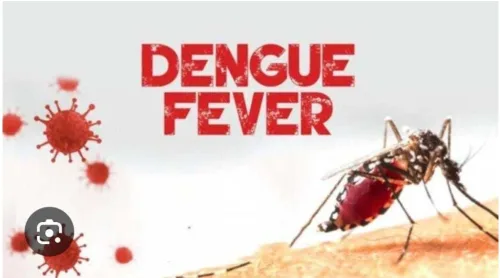
The Ghana Health Service has confirmed nine cases of Dengue fever in the Eastern region. In a statement signed by the Director General of Ghana Health Service, Dr. Patrick Kumah-Aboagye, it was reported that the National Surveillance System identified unusual cases of malaria-like illness in several districts of the Eastern Region. These cases did not respond to the recommended antimalarial treatment regimens and were therefore treated as acute febrile illnesses.
Samples from the patients were sent to the Noguchi Memorial Institute for Medical Research (NMIMR) for testing, which subsequently confirmed the presence of Dengue fever. The nine confirmed cases of Dengue are currently being managed as non-severe cases at home. In response to this development, a team comprising Entomologists and Epidemiologists from the national level has joined the regional team to conduct a comprehensive outbreak investigation.
Preparedness measures and actions currently in progress:
A National Emergency Operation Center (EOC) convening has been conducted.
Alerts have been disseminated to all Regions and Districts to enhace surveillance for prompt detection, to educate health personnel, and to raise public awareness.
An intensified surveillance program has been initiated.
Ongoing public campaigns regarding signs, symptoms, and preventive measures are in effect.
Entomological evaluation in the impacted areas is underway.
About Dengue fever disease
Dengue is a viral infection transmitted by mosquitoes to individuals. While many individuals infected with dengue may remain asymptomatic, those who do exhibit symptoms commonly experience high fever, headaches, body aches, nausea, and a rash.Recovery typically occurs within a span of 1-2 weeks; however, in certain cases, individuals may progress to severe dengue, characterized by bleeding and necessitating hospitalization. In severe instances, dengue can prove to be fatal.
The management of dengue primarily involves supportive care, focusing on rehydration through ample fluid intake, pain alleviation, extensive rest, and other pertinent measures. As of now, there exists no specific medication tailored for the treatment of this condition. Dengue fevee spreads through the bite of an Aedes mosquito carrying the virus.
Preventive Measures
To prevent the transmission of dengue fever, it is essential to avoid and shield oneself from mosquito bites. These mosquitoes, which are carriers of the disease, are most active during the daytime. Individuals are advised to take the following precautions to protect themselves:
Dress in full-length attire that covers the limbs adequately.
Utilize mosquito repellent as a protective measure.
Employ insecticide-treated mosquito nets, especially for infants, elderly individuals, and others who may be resting during the day.
Ensure that all water storage units such as coolers, tanks, barrels, drums, and buckets are covered and drained regularly.
Eliminate any objects within the household that have the potential to collect water.
Drain gutters and and drainage regularly to avoid breeding.
It is strongly recommended that the general public refrains from engaging in self-medication. Health authorities are diligently collaborating with their partners to effectively manage and mitigate the outbreak’s impact.
.





















